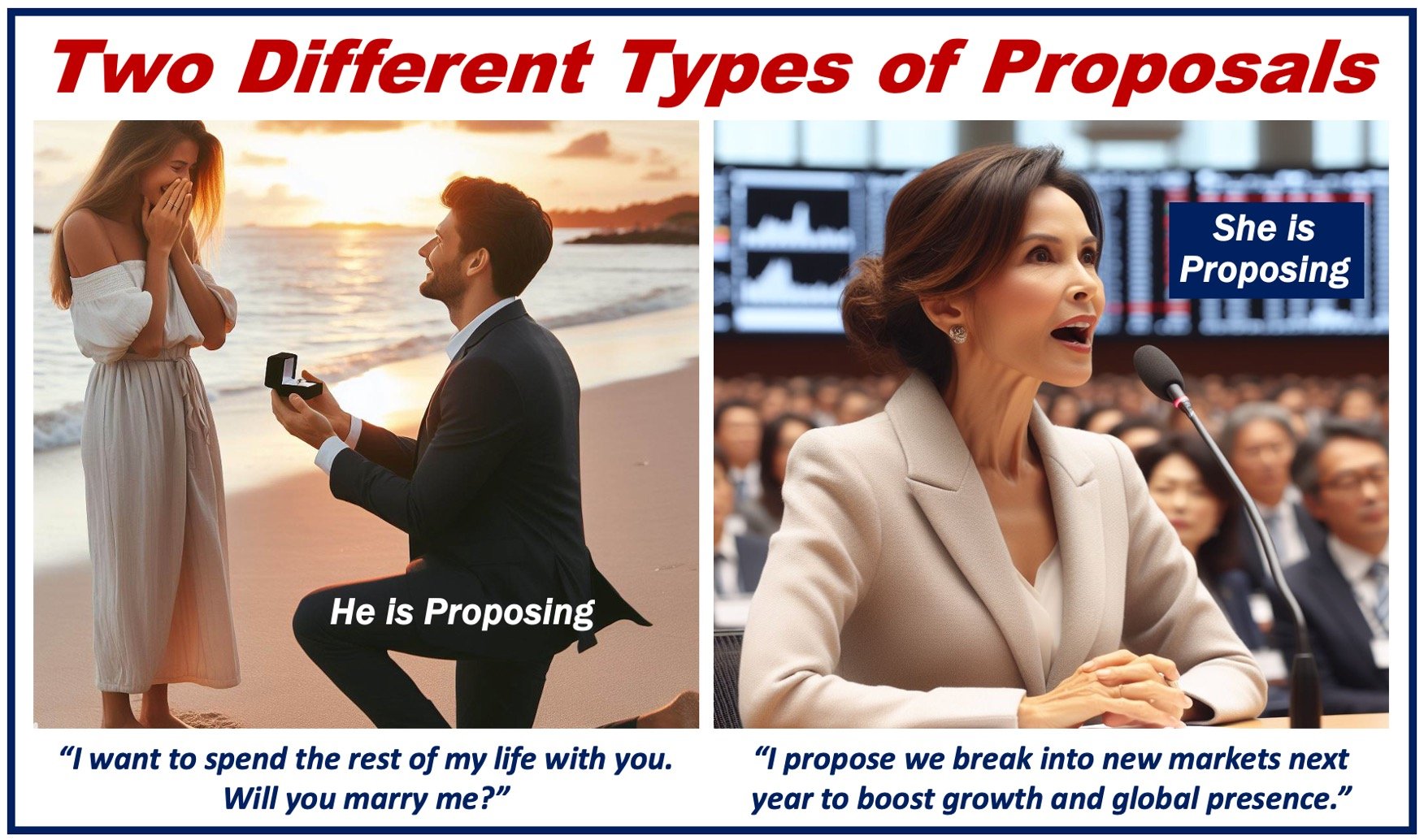A Proposal is a suggestion, usually in written form, to get people to support an idea or plan. A well-written proposal can help to secure a deal.
 Do you know who is going to read your proposal? Image pixabay.
Do you know who is going to read your proposal? Image pixabay.
Possible meanings
A Bid
According to the State University of New York Plattsburgh Glossary of Financial Services Terms, a proposal is essentially a bid or offer (submitted either in writing or orally) by a contractor when a purchaser requests it, typically in competition with other vendors. Proposals are usually opened publicly at a predetermined time and place.
A Formal Suggestion or Plan
A proposal may also refer to a plan or suggestion, especially a formal or written one, put forward for consideration by others.
This can include a research proposal submitted for academic purposes, which outlines a planned study or project often submitted for approval.
In a governmental context, a proposal might be a formal suggestion or plan put forward for consideration by a governmental body, such as a policy proposal that details new legislation or changes to existing laws.
Marriage
When somebody makes an offer of marriage, we can say they have made a proposal or they proposed.
This article focuses on the term ‘proposal’ when it refers to a bid or other form of written or oral submission, a formal written suggestion, or in the context of academic and governmental proposals, excluding its use in making an offer of marriage.
Tips on proposal writing
To succeed in this era of rapid technological change, businesses have to prove that they have their “customers’ best interests in mind.” A winning proposal should sing this out loud and clear.
The Internet is awash with tips and suggestions on how to write proposals. And this section offers yet another list. But there is really only one main tip: know your reader. Show them you care about them and their concerns. The rest just follows from that. So here are our top tips and guiding questions:
- Understand your readers and their needs and wants – not just the project
- Who is going to review the proposal? What are their roles? Who is the decision maker?
- Does the proposal address their main concerns?
- Don’t switch off your reader by drowning them in jargon or boring them with clichés
- Be straightforward and to the point
- Emphasize benefits over features – features describe, while benefits sell
- Is it clear that you are the best person to do this work?
- Check the copy for grammar, spelling, typographical, and formatting errors
- Ask several people who are not familiar with your work to critique it for clarity, tone, interest, ease of reading, and overall impression
- Could the document be shorter?
- If you use pictures, make them specific – don’t use generic or stock photos
- Allow plenty of time for research and preparation

Example: A funding proposal
Often, in the worlds of business and government, the purpose of proposals is to gain support for projects and schemes.
Non-Government Organizations (NGOs), for instance, write them to gain funding from donors.
The following list suggests some key elements for a typical proposal:
- Date, name of organization seeking funding, Project title
- Background: Why this project, what problem does it solve?
- Objectives: A short list of specific and measurable goals
- Scope: Describe end result, work phases, and what is not included
- Timescale: Map showing each phase, start and end dates, outline of task
- Budget: List the costs, both one-off and recurring
- Key stakeholders: E.g. client, sponsor, project manager
- Monitoring and evaluation: How will progress be tracked during and at end?
There are many templates and other tools online to help you draft a good proposal. These can be useful ways to get started and generate ideas.
Beware, however, that over-reliance on such tools can lead to generic proposals. Clients like to feel special, and your proposals need to be uniquely tailored to them. No two should be the same.
